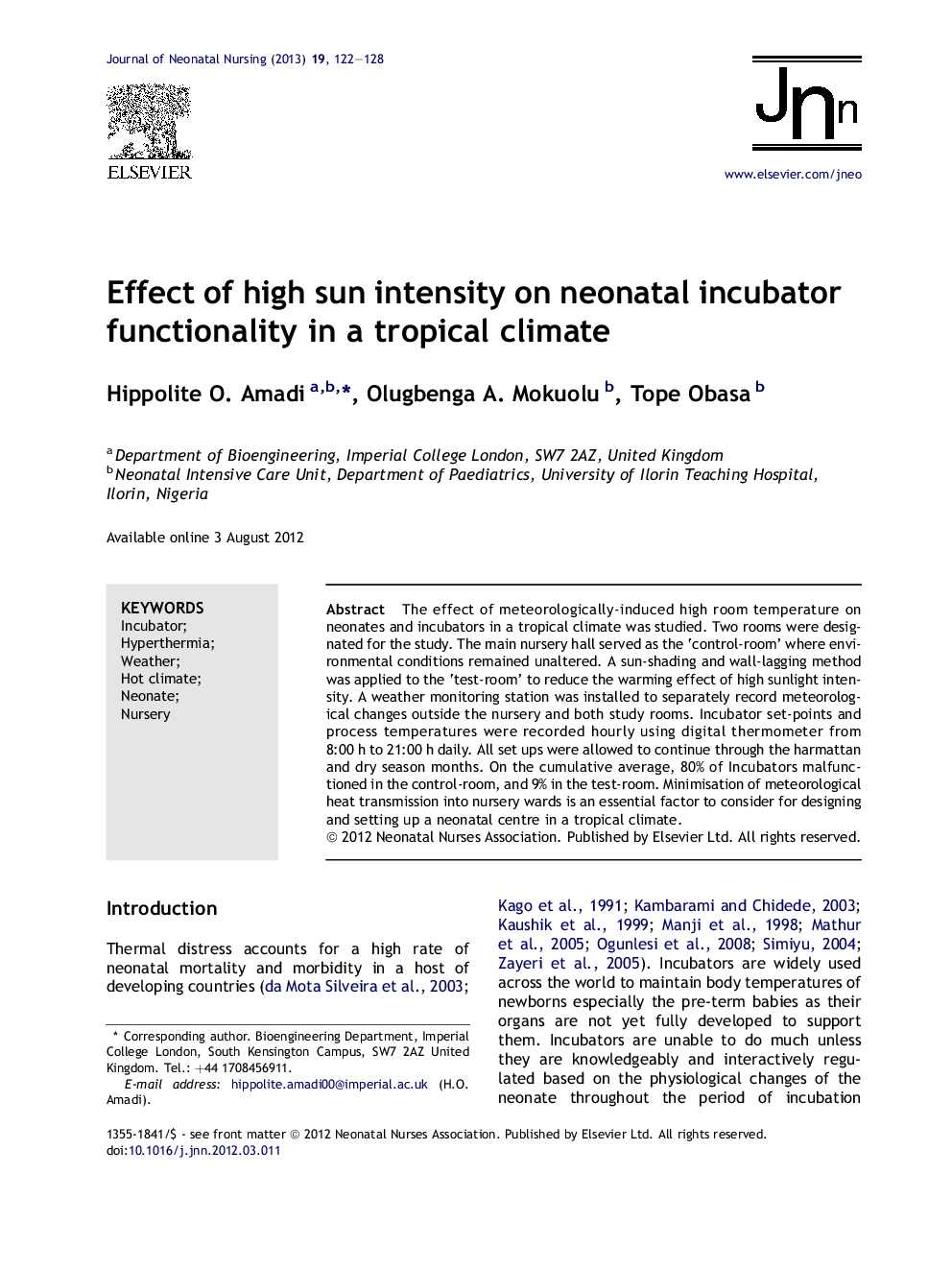| Article ID | Journal | Published Year | Pages | File Type |
|---|---|---|---|---|
| 2631560 | Journal of Neonatal Nursing | 2013 | 7 Pages |
The effect of meteorologically-induced high room temperature on neonates and incubators in a tropical climate was studied. Two rooms were designated for the study. The main nursery hall served as the ‘control-room’ where environmental conditions remained unaltered. A sun-shading and wall-lagging method was applied to the ‘test-room’ to reduce the warming effect of high sunlight intensity. A weather monitoring station was installed to separately record meteorological changes outside the nursery and both study rooms. Incubator set-points and process temperatures were recorded hourly using digital thermometer from 8:00 h to 21:00 h daily. All set ups were allowed to continue through the harmattan and dry season months. On the cumulative average, 80% of Incubators malfunctioned in the control-room, and 9% in the test-room. Minimisation of meteorological heat transmission into nursery wards is an essential factor to consider for designing and setting up a neonatal centre in a tropical climate.
